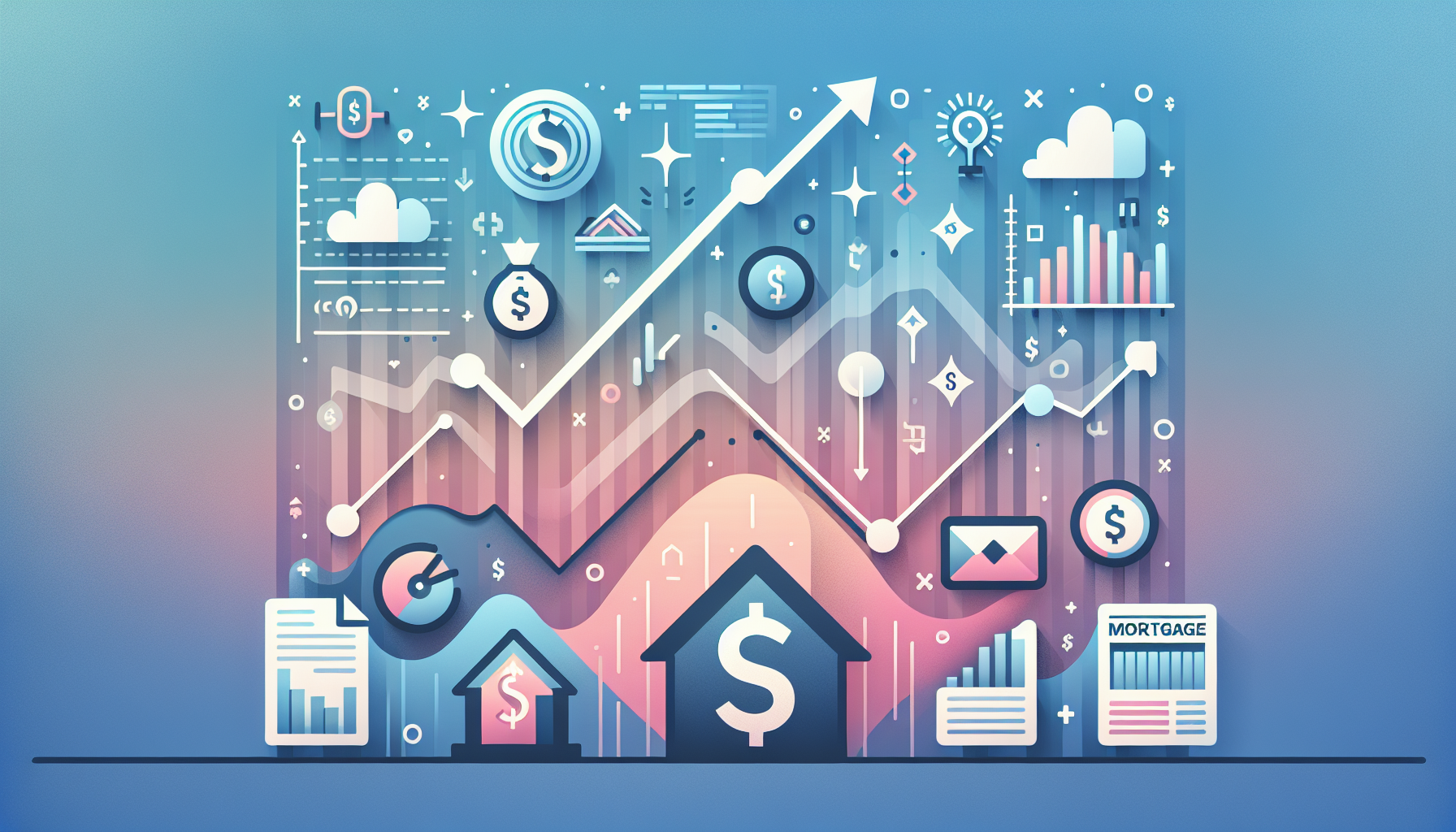The Impact of Inflation on Mortgages

Navigating the Complex Relationship Between Inflation and Mortgages
In the ever-fluctuating economic landscape, understanding the impact of inflation on mortgages is crucial for both prospective and current homeowners. Inflation, a sustained increase in the general price level of goods and services, has a direct and significant influence on mortgage interest rates and, consequently, on the cost of borrowing.
How Inflation Affects Mortgage Interest Rates
When inflation rises, central banks typically respond by increasing interest rates to combat the inflationary pressures. This policy response is designed to reduce aggregate demand and bring inflation back to targeted levels. For mortgage borrowers, this means that the cost of borrowing becomes more expensive.
As explained by Chase Bank, "When inflation causes central banks to raise interest rates, borrowing becomes more expensive, leading to higher costs for new mortgages."
The Difference Between Fixed-Rate and Adjustable-Rate Mortgages
Understanding the distinction between fixed-rate and adjustable-rate mortgages (ARMs) is vital in an inflationary environment.
Fixed-Rate Mortgages
Fixed-rate mortgages offer a consistent interest rate for the entire life of the loan. This stability means that your monthly principal and interest payments will remain the same, regardless of changes in interest rates. For example, if you secure a 30-year fixed-rate mortgage at 7%, your monthly payments will remain constant over the 30 years, even if inflation drives interest rates higher in the future.
Adjustable-Rate Mortgages
ARMs, on the other hand, start with an initial period where the rate remains constant, typically ranging from five to 10 years. After this period, the interest rate adjusts periodically based on market conditions. This makes ARMs more sensitive to interest rate fluctuations. If interest rates rise due to inflation, the monthly payments on an ARM can increase significantly once the fixed-rate period ends.
Refinancing as a Hedge Against Inflation
Refinancing can be a strategic move to mitigate the impact of inflation on your mortgage.
Locking in Fixed Rates
Refinancing into a fixed-rate mortgage can provide stability and predictability in your monthly payments. As AD Mortgage notes, "By refinancing into a fixed-rate mortgage, borrowers can lock in their current interest rate and payment structure for the remaining life of their loan. This means that even if inflation drives interest rates higher in the future, the borrower’s mortgage payments will remain unaffected."
Case Study: Sarah and Mark
Consider the example of Sarah and Mark, who bought their home with an ARM. As inflation began to rise, they worried about their ARM resetting at a higher rate. By refinancing into a fixed-rate mortgage, they were able to lock in a low, fixed interest rate, ensuring their monthly payments would remain stable despite future inflationary pressures.
The Role of Central Banks and Monetary Policy
Central banks, such as the Federal Reserve in the U.S., play a crucial role in managing inflation through monetary policy. The Fed targets an average inflation rate of 2% and uses interest rates as a primary tool to achieve this goal. When inflation rises above this target, the Fed may increase its benchmark federal funds rate, which in turn raises other interest rates, including mortgage rates.
Market Reactions and Future Outlook
Market reactions to inflation data can also influence mortgage rates. For instance, if investors anticipate that the Fed will maintain higher rates due to inflation concerns, yields on government securities like the 10-year Treasury note may increase. This can prompt lenders to adjust their mortgage rates upward to sustain profit margins.
Practical Steps for Homeowners
Given the current economic climate, here are some practical steps homeowners can take:
- Monitor Inflation and Interest Rate Trends: Keep an eye on inflation reports and interest rate changes to anticipate potential impacts on your mortgage.
- Consider Refinancing: If you have an ARM or a variable-rate mortgage, refinancing into a fixed-rate mortgage can provide long-term stability.
- Use Financial Tools: Utilize tools like the WP Ultimate Loan & Mortgage Calculator to calculate and compare different mortgage scenarios, helping you make informed decisions.
Conclusion and Next Steps
Inflation's impact on mortgages is multifaceted and significant. By understanding the relationship between inflation and interest rates, and by leveraging strategies such as refinancing into fixed-rate mortgages, homeowners can better navigate these economic challenges.
For those looking to secure their financial futures, it is crucial to act now. Consult with a mortgage broker or financial advisor to discuss the long-term benefits of refinancing and other strategies to hedge against inflation. If you have questions or need further guidance, you can Contact Us for personalized advice.
In the ever-changing economic landscape, being proactive and informed is key to making the best financial decisions. Whether you are a prospective homebuyer or a current homeowner, understanding the impact of inflation on mortgages can help you make smarter, more stable financial choices.
Additional Resources
- For more detailed information on how inflation affects mortgage rates, you can refer to the Chase Bank's guide on inflation and mortgage rates.
- To explore the benefits of refinancing as a hedge against inflation, check out the AD Mortgage blog post.
- For a comprehensive overview of the relationship between inflation and interest rates, visit Investopedia's article on the topic.
By staying informed and using the right tools and strategies, you can better manage the impact of inflation on your mortgage and secure a more stable financial future.











